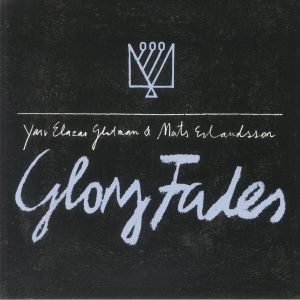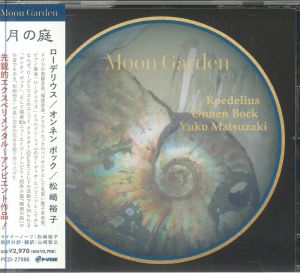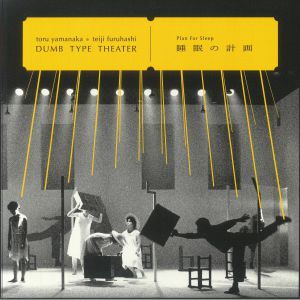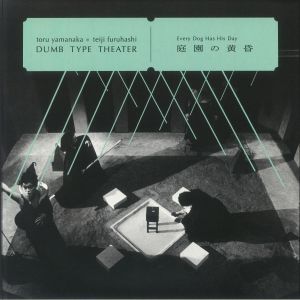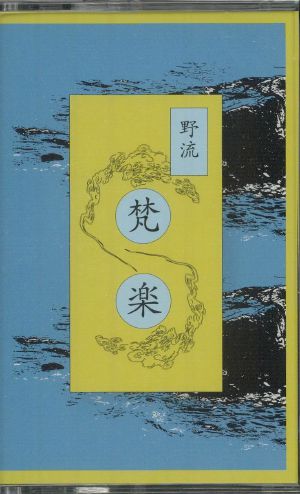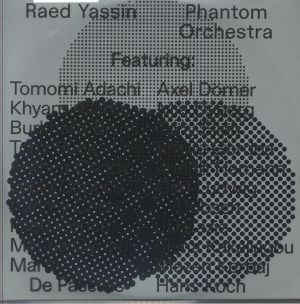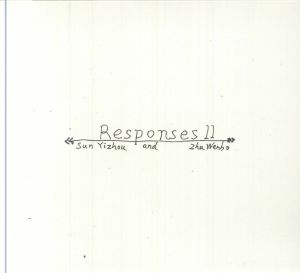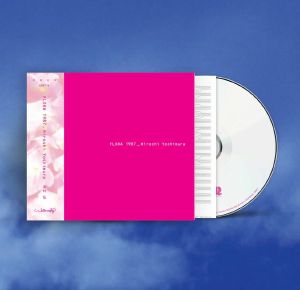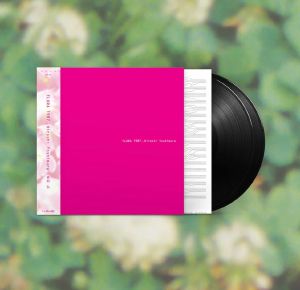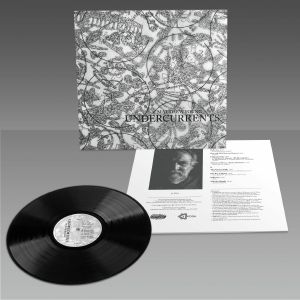Filter
Genre
Stock
Artist
Label
Featured
Release Title
Price
Back catalogue: All genres
Juno's full catalogue of All genres
Singles
Review: This package of remixes of tunes from Translations is a real gem for lovers of Future Sound of London. plenty of familiar samples and textures are worked into the five Yage remixes as are cosmic overtones, sitars, drones, backward guitars and more. 'The Big Blue' is a woozy intergalactic sound on slow-mo beats, 'Requiem' is a worldly dub, 'The Lovers' has psyched-out lead riffs that bring prog energy and 'The Great Marmalade Mama In The Sky' has drunken tabla drums and mesmeric strings for a perfect retro-future comedown. 'Wooden Ship' is a spine-tingling sound with choral vocals bringing the celestial charm.
… Read more in stock $22.26
Alben
in stock $18.88
in stock $26.20
Review: In a collaboration for the ages, we hear German kosmische musician Hans-Joachim Roedelius (Cluster, Harmonia) team up with Japanese flutist Yuko Matsuzaki and Berlin Philharmonic analog musician sound engineer Onnen Bock for a nacreous improv blast. Spanning soft, pearly electronica and neoclassical, Moon Garden comprises five works, incorporating techniques and fragments of songs already released. A mythical aura unfurls through synth koto and organic harmonics; 'In The Forest Of Syrinx' establishes a singing bowled, new age aesthetic, segueing into the purely vocal threnody 'Sapphire Jellyfish'. Bridging electronic washes, piano and female vocals, this is a borderless soundscape of exciting proportions.
… Read more in stock $23.09
Review: Adalsteinn Gudmundsson aka Yagya has long been at the forefront of the dub world, He has a fantastically painterly style that fauna him sweeping long-tailed chords across wide-open vistas and laying down smooth basslines that lock you in. The changing seasons of his native Incline have often been his chief inspiration and that's the case again here on his most dreamy work to date. The record is divided into the distinct moods of Spring ('Vor') and Autumn ('Haust') and is brilliantly escapist and evocative.
… Read moreGespielt von: Shadow Dancer
in stock $33.79
Plan For Sleep (remastered) (LP + insert + MP3 download code)
Cat: CONATALA 006. Rel: 03 Dec 24
Experimental/Electronic
Review: Dumb Type Theater have been at the forefront of Japan's performance art landscape since 1984, although the years between then and now have seen some significant changes - culturally and in terms of the group. The death of Teiji Furuhashi, one of the central members, is just one example. A pivotal player in performances, he was often tasked with translating the instrumentation and arrangements of musician Toru Yamanaka into on-stage directions. Removed from that context, Yamanaka and Furuhashi's sounds still work incredibly well. There are aspects of Plan For Sleep that evoke the US avant garde of the time, perhaps reiterating the fact that the late-20th Century saw a closing of distances and a shared vision of where the future was heading among broad communities. Sound art, in the most musical and listenable sense.
… Read more in stock $29.85
Every Dog Has His Day (remastered) (LP + insert + MP3 download code)
Cat: CONATALA 007. Rel: 03 Dec 24
Experimental/Electronic
Review: It's not hard to see just how ahead of their time Dumb Type were. And still are. Founded in Kyoto, Japan, in 1984, the artist collective looked to interpret and portray the changes they could see beginning to happen around them in society - specifically the start of the (information) technology age. Presenting work that took a dark and cynical view of the increasing importance and prevalence of equipment and digital in the every day, they do this though art exhibitions, performances and publications. Audiovisual installations have always been particularly prominent, and Every Dog Has His Day - one of two Dumb Theater albums previously only available on tape, now issued on vinyl for the first time - makes it clear music was never an afterthought. Credited to Toru Yamanaka, who wrote much of their heard work, and the late Teiji Furuhashi, who translated that onto stage, it's an avant garde essential.
… Read more in stock $25.91
Review: Re-rendered in a stunning full-length form, the groundbreaking soundtrack to the 1988 anime film Akira is here remixed in full by individual members of Geinoh Yamashirogumi, the elusive Japanese music collective behind the original Akira OST. Founded in 1974 by musician and agricultural scientist Tsutomu Ohashi, Geinoh Yamashirogumi still to this day adhere to a loose ecology, comprising hundreds of people with different occupations. Recreating folk music along modern dance musical and electronic lines - terraformed folktronica, if you will - the original Akira soundtrack was innovative, drawing on such Japanese folk musics as gamelan and noh while merging them into. Spawning many later remixes across electronica and dance music, this fresh remix record is fully overseen by director Katsuhiro Otomo and tracks larger-than-life remixes from Makoto Kubota, Kuniaki Haishima and Yasuharu Konishi, ragtag but chosen members of Geinoh Yamashirogumi.
… Read more in stock $84.22
The English Patient (Soundtrack) (Deluxe Edition) (gatefold 'saharan sun' translucent orange vinyl 2xLP)
Cat: 725579 1. Rel: 26 Mar 25
Soundtracks
Review: The music from Michael Ondaatje's Booker Prize and 12-Oscar-winning film encompasses the original score by Gabriel Yared with the haunting vocals of Marta Sebestyen and Fred Astaire. It is a story which has successfully made its mark on every medium that counts a - a classic to beat all classics. It's a cathartic journey that explores identity, fidelity, and fate amid the chaos of World War II. Shot against the majestic backdrop of the Northern Sahara and Italy, Yared's score blends Hungarian folk tunes, baroque themes, and romantic orchestration and mirrors the emotion of the film's characters without relying on visuals. Period tracks by Fred Astaire, Ella Fitzgerald and Benny Goodman complement the emotional depth of the story.
… Read more in stock $41.13
Gespielt von: Juno Recommends Ambient/Drone
in stock $19.15
Phantom Orchestra (2xLP (soundfiles not available))
Cat: DOSER 046LP. Rel: 06 Mar 25
Experimental/Electronic
Movement (I)
Movement (II)
Movement (III)
Movement (IV)
Movement (V)
Movement (VI)
Movement (VII)
in stock $200.00
in stock $26.47
Evangelic Girl Is A Gun ('iris of bloodlust' translucent red marbled vinyl LP + poster (indie exclusive))
Cat: ZEN 315E. Rel: 29 May 25
Experimental/Electronic
Review: Yeule (Nat Cmiel) is something of a sonic scrapyard varmint, scouring the lost wastes for augmentable audio parts perhaps useable in their madcap experiments. An avant-garde spin doctor of ash-faced, death-ray-desert-bomb glitch-pop, they've kept their place at the knife-edge of innovation, blending genres and non-genres at the violent vanguard where sounds remain in constant, slipped flux. In the lineage of Machine Girl, ecolagbohrsac2021 or Hakushi Hasegawa, 2022's Glitch Princess laid nutritious ground for Cmiel's now evermore fractious work, Evangelic Girl Is A Gun, which hears the somewhat alter-egoic Yeule now delve into the complexity of a fragmented identity, embracing the duality of light and shadow while echoing surreal animes, such as Serial Experiments Lain and Angel Egg. The LP reimagines Yeule as a haunting figure, exploring ego deaths and transformations in partnership with visual artist Vasso Vu.
… Read more in stock $26.20
! low stock $11.83
Review: Non-binary performance artist Nat Cmiel from Singapore, often also known as yeule, continues to push the boundaries of glitch-pop and alt-electronica with their latest release. After solidifying their reputation as a trailblazer with their sophomore album Glitch Princess and its follow-up softscars, Cmiel takes a more daring, raw approach here. It's a cathartic exploration of self-destruction, trapped identities and the dark undercurrents of post-modernity, where Cmiel's ethereal vocals intertwine with dissonant beats, creating a paradox of beauty and tension.The sprawling atmospherics of 'Tequila Coma' and '1967' unfurl into a liquid haze, giving way to the razor-edged urgency of 'VV' and 'Dudu', which channel a palpable, jittery rhythm that commands attention. Collaborating with the likes of A.G. Cook and Mura Masa, the album navigates between haunting introspection and electrifying energy. It's a striking nod to Cmiel's ability to balance vulnerability and sonic experimentation, presenting a portrait of the artist struggling with the very image they've built.
… Read more in stock $24.51
in stock $13.51
Review: Stepping into the world of Hiroshi Yoshimura is like entering a tranquil garden, where every sound is a carefully cultivated element of the landscape. His music, originating in the 1980s, blurs the lines between ambient soundscapes and composed pieces, creating an immersive experience that evokes the serenity of the natural world. 'Over The Clover' whispers with the gentle rustling of leaves, while 'Flora' blossoms with delicate melodies. Yoshimura captures the essence of specific natural elements, from the unfurling of a morning glory in 'Asagao' to the subtle shifts in air pressure in 'Wind Echo'. He even finds music in the unexpected, as 'Maple Syrup Factory' introduces a surprising sweetness to the sonic landscape. But Yoshimura's work is not simply about recreating the sounds of nature. The Japanese musician and composer encourages a deeper listening experience, where subtle details and intricate textures emerge with each listen, definitely music that rewards close attention.
… Read moreGespielt von: Juno Recommends Leftfield, Juno Recommends Ambient/Drone
in stock $21.13
Review: Hiroshi Yoshimura is having a moment. Originally released in the 1980s, this collection of environmental music from the Japanese musician and composer offers a tranquil listening experience, Yoshimura painting sonic landscapes that evoke the subtle beauty of the natural world. 'Over The Clover' unfolds with the gentle sway of leaves, while 'Flora' captures the delicate essence of blossoming flowers. Each track is a miniature portrait of nature's intricacies, from the unfurling of morning glories in 'Asagao' to the whispering breeze of 'Wind Echo'. 'Maple Syrup Factory' adds a touch of unexpected sweetness, a subtle shift in the otherwise serene palette. But this is more than just pretty soundscapes. Yoshimura's music invites active listening, revealing intricate details that might be missed on a casual listen. It's music that rewards close attention while simultaneously blending into the background of everyday life.
… Read moreGespielt von: Juno Recommends Ambient/Drone
in stock $55.21
Review: Much to nerdy Japanese electronic lovers' delight, Temporal Drift reissued Hiroshi Yoshimura's Surround last year, and now carry on focussing on his work with the first-ever reissue of Flora, an overlooked gem in ambient music. Recorded in 1987 but unreleased until 2006, which was three years after Yoshimura's sad passing, Flora carries on in style where his acclaimed works Green and Surround left off. It's another sublime record that highlights Yoshimura's ability to explore the interplay between sound and ambience. He was a diverse talent who also created an album for museum playback, and composed a soundtrack for a contemporary fashion show.
… Read moreGespielt von: Alexis Le-Tan, Juno Recommends Ambient/Drone
in stock $60.28
Cat: IMPREC 538. Rel: 09 Jan 25
Ambient/Drone
CD1: Spiritual Questing
CD2: Intuition
CD3: Communication
CD4: Love
CD5: Personal Power
CD6: Sexual & Emotional Balance
CD7: Earth Connection
Review: Reissued on Important Records comes Agartha, which forms part of a long wave of easy listening and new age music made popular in the 1980s and 90s. Meredith Young-Sowers joins a class of musicians, from Eliane Radigue to Steven Halpern, who made music as utilities for meditation. Young-Sowers' work, however, may share an aesthetic with these knowns, but otherwise nurtures an eerier vibe. Agartha was originally released in 1986 on cassette, and is made up largely of unnaturally sustained sine tone unfurlings laid in harmonic or minor keys, as if to decouple the unsettling atmosphere of the music from their meditative capacity. Though it sounds like it, the record is not aleatory, rather it is composed expressly to sound like it has been transmitted from an extimate point outside of human consciousness. No wonder it is named after a mythical land said to lie deep below the Earth's crust!
… Read more in stock $43.38
in stock $28.73

 USD
USD








